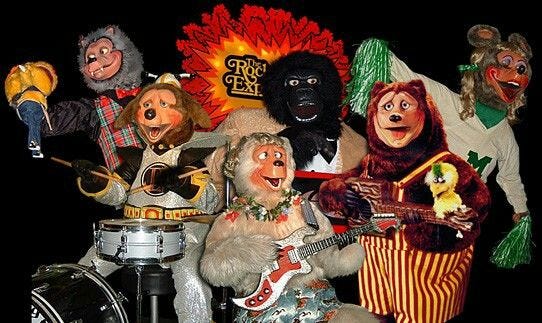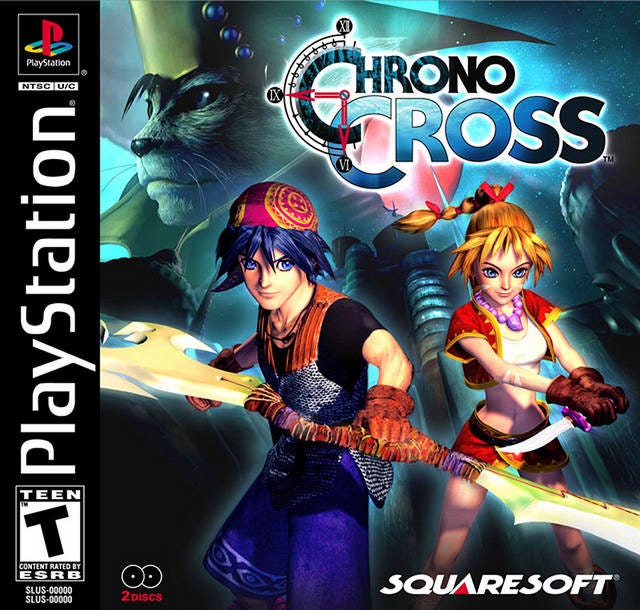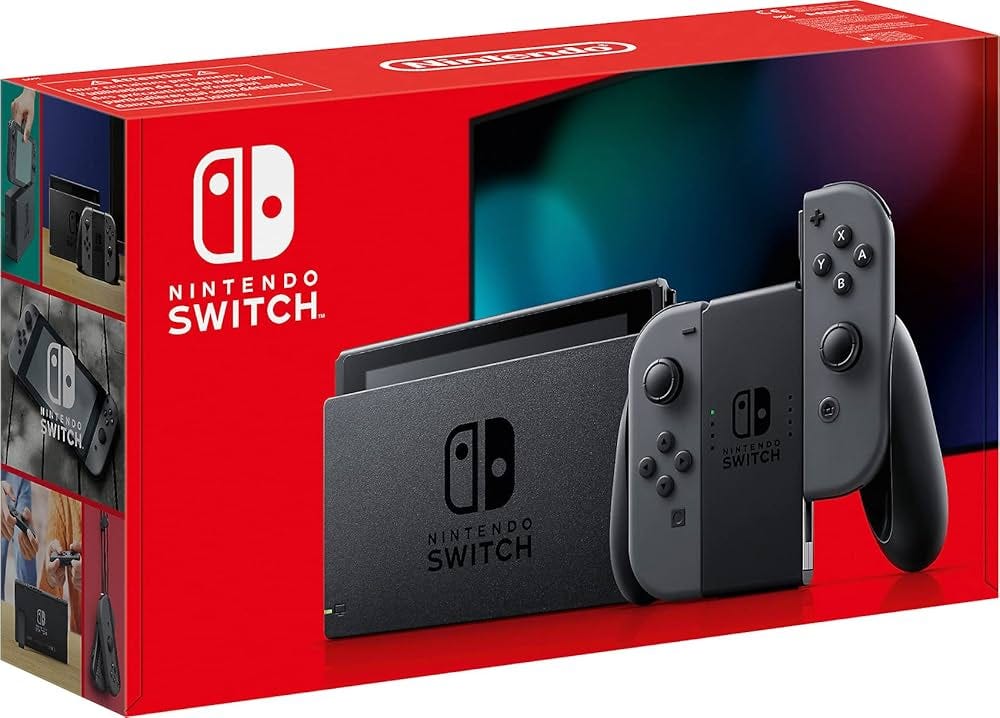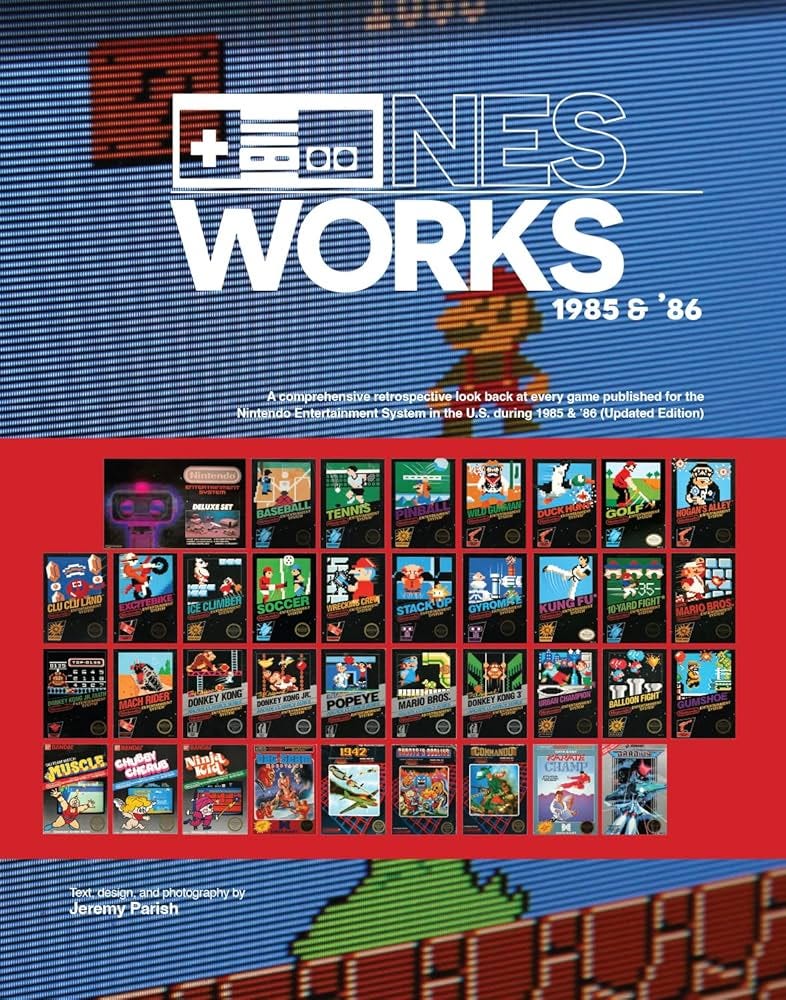A Conversation with Jeremy Parish, the Godfather of Retro Gaming Discourse
Early Beginnings, Gaming Journalism, and the Future of the Gaming Industry
Sonoran Videogame Society is an email newsletter dedicated to exploring and playing video games with readers like you. Some articles are free, some are for paid subscribers only. Don’t forget to sign up here:
If you’re into retro games and you’ve been online sometime within the last twenty years, you’ve encountered Jeremy Parish’s work.
He’s the co-creator of the Retronauts Podcast. He’s systematically playing through the libraries of multiple consoles in chronological order on YouTube with his Video Works series. He’s also the Media Curator for Limited Run Games. Previously, he was the editor-in-chief at USGamer, senior editor/editor-in-chief of 1Up.com, and Executive Editor at IGN.
All his work is top-notch, but I’m particularly fond of his books, which you can check out here (a couple of the books listed in this link are not his, but the bulk of them are).
We recently talked about his time in the online gaming press, his take on the modern gaming industry, and upcoming projects.
The following transcript is the bulk of our conversation, edited and revised for clarity.
Growing Up
You grew up in Lubbock, Texas?
I did. Very exciting times.
There’s not a whole lot going on in Lubbock. Am I wrong about that?
If we're talking about video games, I went to arcades and pizza parlors with lots of games. Any game that came through for Nintendo or whatever, I had access to it. Lots of friends growing up playing video games. It was a social experience. In that sense, I feel like there was a pretty decent amount of stuff going on. Culturally, yeah, it was kind of... Going to museums was a rare and interesting treat for me until I was in my 20s or 30s, because there just wasn't much in the way of museums in Lubbock.
I don't feel like I grew up deprived. I did grow up thinking seafood sounds really interesting and I would love to have good seafood someday. Then I got away and started to live closer to the coasts and it turns out seafood [there] is really good, while seafood in Lubbock was very sad. But no, I feel like I had a good education and good opportunities, despite Lubbock being a small city.
At some point, in Lubbock, you encounter the NES. Is that an ‘Aha!’ moment, as it was for so many of us? Did you have encounters with games before that, and the NES was just the icing on the cake?
I had a lot of experience with arcade games and even console games before the NES came out. There were pizza parlors, like a Chuck E. Cheese showbiz pizza type places. They say pets are food motivated. I was video game motivated.
One year, my second grade year, our teacher made us a deal. Anyone who got A's all year, she would take all of those students out for a pizza party at Showbiz Pizza. And at the end of the year, I was the only one who had managed to keep all A's. But I was motivated. So I basically had a date with my second grade teacher where she took me to Showbiz Pizza. I spent a lot of money on video games, ate some god-awful pizza and watched those weird horrifying Five Nights at Freddy's robots.
We had a ColecoVision once the video games industry crashed and those things became super cheap. Didn't have a lot of games for it, but we did have a few. I did have friends who had Ataris and Commodore 64s… But yeah, I mean, once the NES came along, it was obviously a leap beyond what had come before in terms of consoles.
I remember the first time I ever saw an NES, so yes, it was an Aha moment because i remember it was at Federated the electronics store. Do you remember Federated? It was a big box electronic retailer before Best Buy and Circuit City. And they had a lot of computers on display, a lot of stereo components, and sometimes video games. When we would walk through the store, I would look at the Amiga displays doing their graphics demos and be like, wow. That's so cool, but it costs $3,000. That's impossible.
I do remember seeing an NES and someone was playing Kung Fu and I thought it was the most amazing thing. And also it was like 99 bucks. I said, “Wow, that's a thing I can own.” It took a while, but we did eventually own one. I had friends down the block who had NESs, lots of classmates who got on the NES train early in the system's life, like when it was just black box games. So I had a lot of exposure to that and definitely coveted the NES until I got my own.
So from there, did you follow the ancient path of NES, Game Boy, Super NES, N64, whoops, made a mistake? How did your gaming path proceed from the NES?
That's actually pretty close. I didn't have the money for a Game Boy, so I looked on in envy. But I did get a Super NES. I got my first summer job in 1992. And with my first paycheck from the US Department of Agriculture, where I spent the summer picking little pieces of dirt out of trays of cotton roots, so that they could measure the length of the roots.
Wow.
And do AB samples versus with one pesticide without pesticide, and see, like, is this good or bad? It was a very tedious job, me with tweezers and just picking specks of debris out of cotton roots. But it was a USDA job, and I had it full time for the summer. It paid like double minimum wage.
My very first paycheck, I got myself a Super NES, so summer of 1992. Then it just kind of rolled from there. I did go from Super NES to N64 and said, Okay, well, there aren't any games for this. So early in 1997, I sold that off and used the money to buy a PlayStation and said, Ah, this is the way. Once Zelda came out, Zelda 64 as we called it back then, I did find a used N64 and repatriated it into my home setup. But I was definitely much more of a PlayStation kid at that point.
So you’re growing up, enjoying games, enjoying life. Eventually, you go to college. What was your emphasis there?
It was graphic design. On the side, I spent a lot of time working on the student newspaper. I did take one or two mass communication classes [also]. Yeah, so I drifted naturally toward publications in terms of writing and design. And that's kind of what I do now at Limited Run Games. So I guess I actually am one of those rare people who majored in something in college and got it right.
Writing About Games For a Living Online
So you’ve been on the internet in a professional capacity for about 20 years? Something like that?
I guess it depends on where you want to draw the line and determine what is professional. My first paying gig was actually in 2000. So that's nearly 25 years now. And that was a freelance gig, but it paid very well, you know, for the two times that I did it. I guess that's professional writing because it was for GameSpot, not GameStop, back, I think, when they still answered to the name Videogames.com.
My journalism career works like this. In 1996, I bought myself a “How To Code HTML” book, one of those giant phone book [guides]. I struggled through to make myself a website on GeoCities with two megabytes of space; so luxurious. And I was like, I should write about stuff that I find interesting here, which was mostly not video games. But then Final Fantasy VII came out and I started congregating with people on the unofficial Squaresoft homepage Final Fantasy boards. Some of those people decided to create a little site called the Gaming Intelligence Agency.
[Initially] I did the design for GIA, but then realized the group dynamic here is taking too much time. I’ve got a real job now, full-time job, so I can’t really do this. So I stepped back… but I created a website in 1999 called Toasty Frog. And I parlayed my relationship with the GIA and my love for importing PlayStation games into a few opportunities that boosted my visibility.
Specifically when Legend of Mana came out, there was a Chrono Cross demo in there. I got that game express-mailed to me from National Console Support in New York, went home over my lunch break, played it, recorded footage, then uploaded the videos to the GIA with quick little write-ups. I don't know how I turned it around that fast, but they got that stuff up there. I just said, link to my website at the end of it and you guys can have this and they did. All of a sudden my my daily traffic went from like 50 people to 500. So I started writing about Chrono Cross and other things and over the next couple of years, my daily website traffic went up to like 2,500 people.
I wrote a strategy guide for Chrono Cross based on the import version and I got some things wrong, but people were like, “Hey, here's some stuff that will help you with your guide.” So, I corrected [those things]. And by the time the US version came out, GameSpot was looking for someone to write a Chrono Cross guide and asked, “Can we just use your strategy guide and give you money for it?” And I said, “I feel weird about that, but I will rewrite it for you, and you can pay me for that.” And they agreed. [Then they asked], “Can we also have you do a Skies of Arcadia guide?” and I said absolutely. Then the dot-com bubble burst and they stopped giving out money for strategy guides. Now, strategy guides are a thing that AI writes for free and [they’re] usually wrong. Very sad, a terrible state of affairs.
When 1UP was going to be established, before they had a name for it… people I’d worked with at GIA said, “Hey, we’ve got this website, we need graphic designers, are you interested?” And I said, “I am out of work, so yes… I would be happy to move to California if that’s what it takes.” So I got the job.
I got the job through not just having done the strategy guides, but also having experience with the GIA. Also just having this website that I’d been running for years every day posting stuff about video games, doing artwork and things like that.
I just remember the EIC of 1UP, Sam Kennedy, looking at my portfolio and I could just see, he was like, “Oh, this guy gets it. Like he's drawing fan art of games that I love, like Strider 2. And he's really into the more esoteric stuff that I like too. So we should hire this guy.”
That’s the roundabout story of how my big chunky HTML book eventually turned into a career.
To me, it seems like online journalism has really struggled [to stay alive] starting in the late 2000s until now. Any thoughts on that specifically, since you were in the trenches?
From the very beginning, there was the question of how do we get paid for doing this stuff?
Back in the late 90s - when gaming websites first came online and you had the coalition of sites that became IGN, like PSX Power and N64.com and so forth - there wasn't really money to be made on the internet at that point, it was kind of pre-internet bubble.
Then the bubble happened, online sales started to happen, advertisements started to happen. Suddenly, there was this very quick influx of money into the internet. As digital media came down in cost, server costs and things like that, and print media continued to become more expensive and distribution became expensive for physical products, I think people naturally started to look at the internet as, here's the solution to our problems.
And so there was this transitional era, which is where I came in in 2003 with the launch of 1UP. And to be clear, I was not the original [editor-in-chief] of 1UP. I was the EIC in the kind of winding down days after all of this had fallen through. But there was this move to the internet as sort of like the new haven for journalism and a transition away from print.
1UP was originally owned by Ziff-Davis, and Ziff-Davis had a huge magazine group. It had Electronic Gaming Monthly, Official PlayStation Magazine, GMR, Computer Gaming World. When I first started, Game Now was just winding down, EGM2. So, you know, it was like half a dozen magazines. And then they launched [1UP]. And initially the perception was, who are these upstarts who are just kind of here? They're not publishing anything. They're just putting together a website. Who cares about that? But within a few years, the writing was on the wall and everything started to transition more to 1UP.
There was a period where there was this really great sort of mutualism. There was still a lot of prestige to magazines, like getting something on the cover of a magazine or getting a couple of pages in a magazine was a big deal. And we were able to parlay that access to give 1UP a better access. And then we were able to create packages of content for publishers like, “Hey, if you'll let us get an exclusive preview for this game, not only will you get some pages in EGM, but we'll tie it into 1UP and it will push people toward the magazine. The magazine will push people toward the website.” And it worked really well, I think.
But then 2008 happened. And despite the fact that Michael Pachter said video games are recession proof, they actually weren't. Advertisement sales started to dwindle, and it really affected both the magazines and the website. So at that point, Ziff-Davis declared bankruptcy, and as part of that, they sold off their game group. Hearst came in [and purchased Ziff-Davis], and Hearst is a print publisher, first and foremost. They said, “What do we need with game magazines? We already have magazines.” So they shuttered the magazines and just kept 1UP.
I know there was this layoff in 2009 at 1UP. Were you part of that?
When Hearst came in, they… got rid of two thirds of the people who work there. So there was a huge bloodbath and I was not part of the bloodbath. I've somehow been in this business for more than 20 years and have never been laid off. And that seems bizarre to me. I feel like I might be the only person who can say that. You know, knock on fake wood here. I hope that doesn't change. It's a bleak place right now. Like a third of the games industry has lost its job in the past year and a half…
But no, I was not part of that massive letting go. That was really my first experience with [the mindset of] “Hey, we're going to get rid of most of the people who are doing things, but we still want you to do… three times [as much as you were doing],” which is the direction that business has really gone over the past decade. I was right there riding the cutting edge of the future.
The Modern Gaming Industry
What are your thoughts on the modern gaming industry? Do you have any hope for gaming’s future?
I’d feel a lot darker about the future if not for the existence of Nintendo Switch. Which ironically came out like two months after I stepped down [from USGamer]. [The Switch has] been the breeding ground for [games] that are appealing. Elsewhere in the games industry, you still have the problem of developers being pushed into creating these extremely expensive, big budget games that take years to create and have to sell millions of units to recoup their expenses. The blockbuster approach works for some publishers and some developers, but not for everyone. It's not viable for the majority of game creators.
I'm grateful for companies like XSEED and Nihon Falcom and that middle B class, as opposed to AAA developer/publisher, they still have a place in the world. And they're able to manage budgets, usually, and keep that “not blockbuster” tier of gaming alive. Generally, that’s where you’re going to find, if not innovation, then these kind of comfortable experiences that are not about like… living through a movie or playing the same game for 10,000 hours and they’re updating weekly drops and forcing me to play at certain times. There is a space for those games and an audience for those games, and that’s fine. But I feel like gaming is healthiest when there are more opportunities, more options available. I think Nintendo has been really good at making that viable.
I know no one makes as much money on Nintendo platforms as Nintendo, but everyone's still publishing on Switch and it seems to be doing pretty well for them. Speaking as someone working at Limited Run Games, we publish a lot on Switch and those games generally do very well for us. The audience is there.
So I'm not super skeptical about the future of games. I really didn't think there was going to be a future for consoles when... just listening to Sony's marketing and what they were talking about when they launched PlayStation 4, it really sounded like they were trying to push away from the idea of console generations and hardware-dependent game creation and just create set-top boxes that are pushing content from a back end that could be highly powerful or not. I think that's the direction they were looking for a long time, but I don't think the infrastructure is... it's been a decade, and the infrastructure is still not there, and I don't know if it ever will be.
I think the idea of dedicated game devices and people coming in and saying, “I can make a go of this and make a living off of this.” I think that's with us for the long term. So I'm actually, I would say, more optimistic about the overall state of video games than I was when I left USGamer a decade ago almost.
That said, I think right now the games industry is in a really bad place. I mentioned what percentage of the games industry has been laid off this past year or so. It's bad. It's really bleak, but it's cyclical. I don't know how to break that cycle and keep that from happening, the ups and downs. We're definitely in a down cycle, and I think whenever Nintendo publishes or releases the Switch 2, that should help.
Current And Future Projects
You and I both share a similar obsession of covering games in chronological order. Is this work something you could see yourself doing for the remainder of your days? Or is this a one-day-at-a-time type endeavor for you?
As long as there is an audience for it and I can justify doing this by saying, “Oh look, it's helping to pay the mortgage.” Yeah, it's something I really enjoy, and I have a lot of plans for the future.
The video-to-book pipeline is very satisfying and a decade from now, 20 years from now, I would love to have just this massive library of books on the bookshelf where you can look and you're like, Well, here's a book about games from before the NES launched, both in America and Japan. And then here's the NES launch and beyond and all the game systems that came along and followed with it and so on and so forth.
I feel like to understand why video games are the way they are, it's good to know what the world was like when they were created and also to know what else is out there.
I'm actually working on a project right now, a set of books that...it's really just photography. I haven't announced this yet or anything, but it's really kind of photography focused. The idea is to take a slice of time and not just show a platform's evolution in chronology, but everything that was out there in terms of consoles.
We've covered the NES launch in that era, 1985-86 to death, but people don't talk about what INTV was doing on Intellivision? What was Atari doing not just on 7800 but also 2600? What were the other things out there? Where does this fall in with the Master System?
I will say that when I look at what I've got laid out so far, it really reminds me of going to the store in 1986, ‘87 and looking at the wall at KB Toys or Toys R Us. Well, I guess Toys R Us broke everything up by platform, but some of the stores that didn't necessarily divide things by platform, where everything was just kind of intermixed on the wall. [You say,] “Well, I've got an NES, but... Master System seems kind of cool. That box art's weird, but I've played my friend's Master System, and it always seems pretty sophisticated. And then what's up with this Atari stuff? There's a bunch of Atari games. Is that something that I should be concerned about?”
I really want to capture that feeling of just like, here's all this stuff out there. Because I think 1) it really kind of encapsulates that period of time. But 2) it also helps you to understand, like, in this case, why did the NES succeed? You look at what else was out there. Maybe [the NES] didn't always have the best graphics compared to Master System, but look at how many games there were and how varied they were and what they were doing. How sophisticated the NES seemed compared to the Atari 2600 and how focused it seemed compared to the 7800 and so on and so forth.
I don't know if other people are going to be interested in this to the level that I am. But for me, it really does feel like a chance to do a little archaeology and dig through and… kind of reconstruct what the gaming space was like.
LIGHTNING ROUND
Alright, so we’re going to do a quick lightning round here, about four questions.
What is your favorite gin/gin cocktail?
My favorite gin at the moment is Citadelle Jardin D’Ete. I’m no good with French, but it’s Citadelle gin. It has a kind of citrusy element to it, lemons and things like that. It’s not fake lemon. Just a hint of citrus, so that’s my go-to.
My favorite gin cocktail by far is The Last Word, but it’s really boozy. Generally, if I’m out, I’ll go with either a martini - which is also very boozy - or a negroni, which some people think tastes like cough medicine. I think it tastes like awesome cough medicine.
What is a video game that you return to time and time again?
I have muscle memory to complete Mega Man 2 and Bionic Commando. Those really landed around the same time and hit me in just the right way. There are some RPGs like Chrono Trigger and Final Fantasy VI. Really any of the 16-bit Final Fantasies, I could lose myself in. Final Fantasy Tactics also. That era, like the mid-90s, late 80s, there are a bunch of games that get me hooked. Yoshi’s Island also.
If you weren’t working in the gaming industry, where do you think you’d be?
You know… the van down by the river.
I’d probably have ended up in the advertising or marketing industry being very unhappy and using my graphic design skills for evil. Fortunately, I’ve been very lucky that there’s a lot of community support, just an audience that is happy to help through little subscriptions to enable me to do what I do.
After you’re gone, how would you like to be remembered?
If there’s a bookshelf of things that I created and people can use that as a reference and feel like they’re a little more knowledgeable at the end of the day, and have a better handle on things, then that’s pretty good.
I would also like to be remembered as someone who is basically kind and good. I don’t know if I actually am, but I aspire to that. So hopefully I can figure it out by the time I’m gone.
Jeremy, thanks so much for all your contributions, the podcast, the articles. I know I’ve just been greatly inspired by you, and I know others have as well. I just really appreciate all that you do. Thank you very much.
Yeah, thanks for having me on this Substack chat.
For further discussion with Jeremy and myself about Retronauts, additional 1UP and IGN history, and Steve Lin’s awesome TurboGrafx-16 collection, stay tuned for the full unedited conversation coming this Thursday for paid subscribers only.
If you’re not a paid subscriber, now’s the perfect time. Every subscription tier is 40% off, starting at $3/month, for a limited time. Paid subscribers get 3-4 additional posts a month, like the unedited Parish/Cornelius conversation, along with some other subscriber-only goodies, depending on the tier you choose. It’s a win-win: You get more content and the Society’s lights stay on for another month. We’re very grateful!










Saw Jeremy at a convention a few weeks back. Interesting fella, been reading his stuff for a while. I hope he’s right and that console gaming still has a bright future!
Thank you for this.